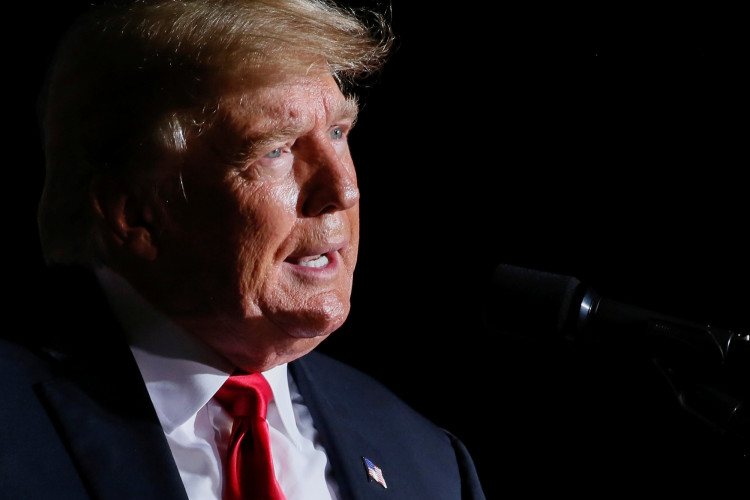As Donald Trump's hush money trial in New York approaches its climax, the former president faces an unprecedented moment in American history. On Wednesday, a jury of seven men and five women will begin deliberating Trump's fate, marking the first time a former president and current major party nominee has faced potential criminal conviction. This decision comes at a critical juncture in the 2024 presidential election, highlighting the stakes involved for both Trump and the nation.
The trial concluded with nearly 10 hours of closing arguments, characterized by intense exchanges between the prosecution and defense. Prosecutor Joshua Steinglass urged the jury to focus solely on the evidence and the logical inferences it presented, asking them to find Trump guilty of a conspiracy to cover up a hush money payment to adult film star Stormy Daniels. Steinglass emphasized, "In the interest of justice and in the name of the people of the state of New York, I ask you to find the defendant guilty."
The prosecution accused Trump of falsifying financial records to conceal the payment, thus betraying voters in the 2016 election. Trump, who denies the affair with Daniels and has pleaded not guilty, chose not to testify in his own defense. His lead counsel, Todd Blanche, sought to discredit the prosecution's key witness, Michael Cohen, labeling him the "Greatest Liar of All Time" and insisting there was no proof of a crime orchestrated by Trump.
Blanche argued that Cohen's payments to Daniels were not disguised reimbursements but legitimate legal fees. He stressed that there was no evidence Trump intended to falsify records to influence the election. "You cannot convict President Trump of any crime beyond a reasonable doubt based on the words of Michael Cohen," Blanche asserted, emphasizing the high standard required for a guilty verdict.
As Trump observed the proceedings, he found himself in a rare position of powerlessness, reliant on others to speak on his behalf. The trial's setting in a New York courthouse, where justice has been served to some of the city's most notorious criminals, starkly contrasted with Trump's usual opulent surroundings.
Outside the courtroom, the atmosphere was charged with political and public interest. Hollywood actor Robert De Niro, representing the Biden campaign, criticized Trump while being confronted by hecklers. Trump's sons, Don Jr. and Eric, also made appearances, denouncing the trial as a political persecution. "We understand that this is a political persecution. That was evidenced today by the Biden campaign themselves holding a rally here," said Don Trump Jr.
Despite the trial's significance, it has not captivated the national attention to the extent of past celebrity trials, partly due to the lack of television cameras in the courtroom. However, some polls indicate that a guilty verdict could sway Republican voters away from Trump, impacting the tight race against President Joe Biden.
If convicted, Trump is expected to vehemently denounce the verdict, intensifying his campaign narrative of being a persecuted victim. An acquittal, on the other hand, would bolster his claims of a witch-hunt, potentially energizing his base. The jury's decision, therefore, carries profound implications not just for Trump but for the broader political landscape.
Steinglass, in his final argument, expanded the case's context to include the integrity of the electoral system, framing the hush money payment as a significant threat to democratic processes. "This scheme cooked up by these men at this time could very well be what got President Trump elected," he argued, underscoring the alleged crime's seriousness.
Blanche, meanwhile, maintained a calm demeanor as he methodically challenged the prosecution's case, aiming to instill reasonable doubt in at least one juror's mind. He reminded the jury that the burden of proof lies with the prosecution and that they must be convinced beyond a reasonable doubt to convict. "We have no burden to prove anything," he said. "The burden is always on the government."
The defense's strategy included highlighting Cohen's lack of credibility and arguing that Trump had no direct involvement in the alleged scheme. Blanche's final plea to the jury not to send Trump to prison led to a stern rebuke from Judge Juan Merchan, who reminded the jurors that their duty was to judge the evidence, not speculate on potential punishments.






